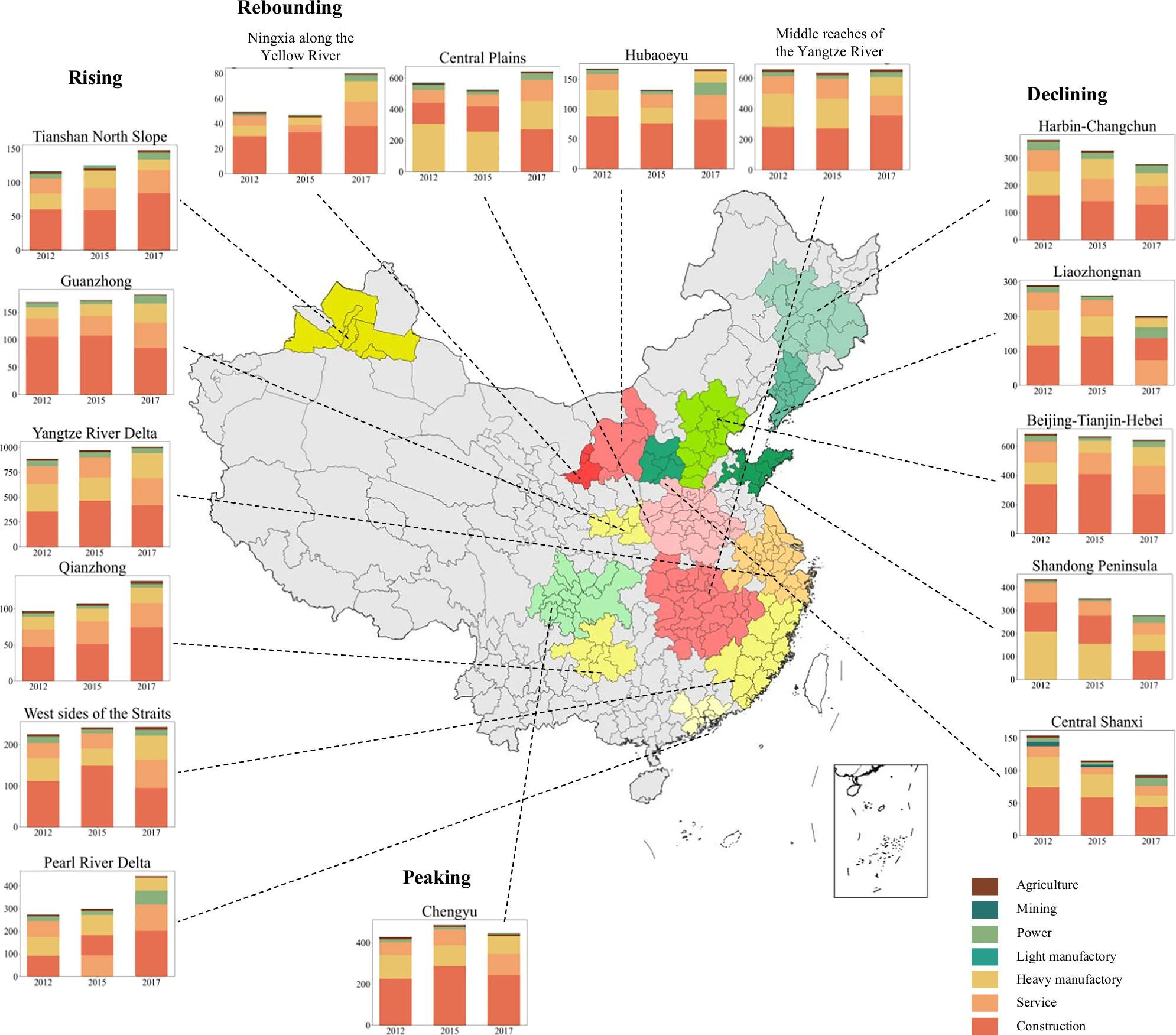A new study published in Communications Earth & Environment sheds light on the changing carbon footprint of China’s major urban agglomerations, and it reveals how inter-city trade can undermine local gains in decarbonisation. The paper, led by Chengqi Xia (Tsinghua University) and colleagues, explores trends between 2012 and 2017 across sixteen urban regions, highlighting the diverse trajectories of emissions reduction, stagnation, or increase.
Some agglomerations, such as Beijing–Tianjin–Hebei, managed to cut their carbon footprint thanks to improved technology and shifts toward lower-impact consumption. Others, however, saw emissions rise, largely driven by growing per-capita consumption and infrastructure expansion. Several regions hovered in between, showing little net change as progress in production efficiency was offset by consumption growth.
What makes the findings particularly striking is the role of inter-urban trade. While local emissions within these agglomerations decreased by over 350 million tonnes, emissions “imported” through trade from other regions increased by more than 800 million tonnes during the same period. In other words, carbon savings achieved locally were more than cancelled out by outsourced emissions. Moreover, the overall capacity of trade to act as a mitigating factor has weakened over time, underscoring the importance of looking beyond city borders when designing climate strategies.
The study also shows that areas outside the main agglomerations are playing an increasingly important role in emission reductions, suggesting that efforts to decarbonise should not focus exclusively on urban centres. Instead, a broader, more connected approach is needed—one that considers the full system of production, consumption, and trade relations.
By uncovering these complex dynamics, the research highlights the need for place-specific and system-wide strategies in climate policy. For projects like PANTHEON, which aim to explore pathways towards carbon neutrality and their wider co-benefits, these insights underline the importance of integrating local action with regional and global perspectives.
Read the full article here: Nature Communications Earth & Environment




